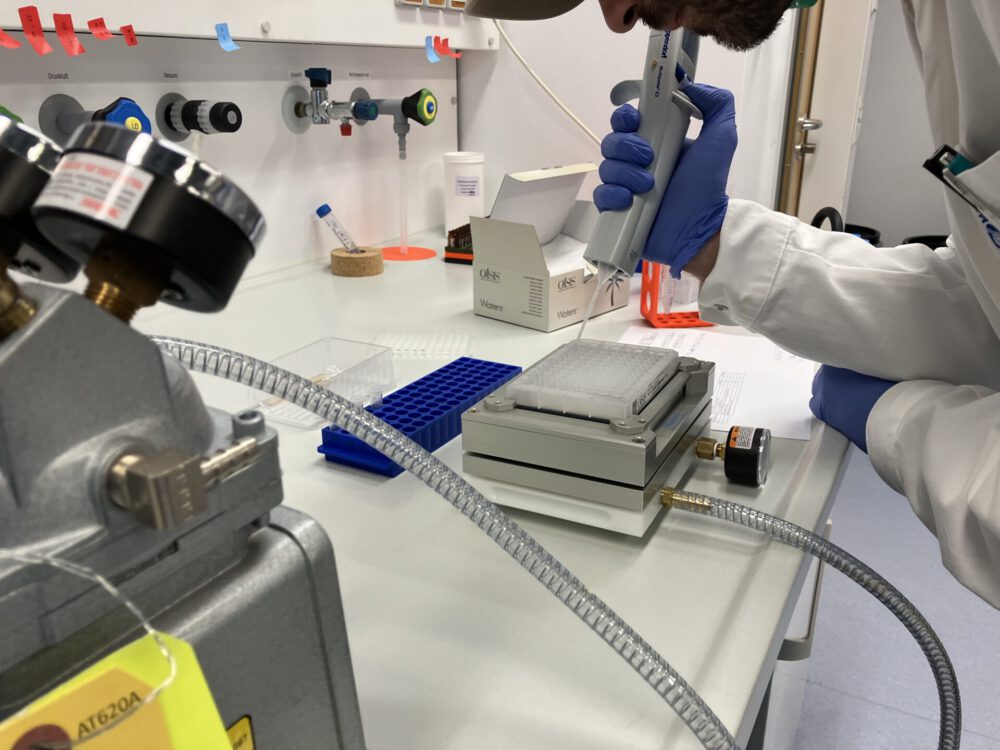BOTCAT: Biomarkers for controlling targeted oral cancer therapy
 Over the past two decades, cancer therapy has undergone a paradigm shift with the introduction of targeted oral kinase inhibitors. However, these often exhibit off-target effects, i.e., therapy-limiting side effects that necessitate discontinuation of treatment. This is also observed in the treatment of renal cell carcinoma (RCC) with the oral tyrosine kinase inhibitors (TKIs) axitinib and cabozantinib.
Over the past two decades, cancer therapy has undergone a paradigm shift with the introduction of targeted oral kinase inhibitors. However, these often exhibit off-target effects, i.e., therapy-limiting side effects that necessitate discontinuation of treatment. This is also observed in the treatment of renal cell carcinoma (RCC) with the oral tyrosine kinase inhibitors (TKIs) axitinib and cabozantinib.
The Working Group Clinical Pharmacy and Pharmacotherapy, Department of Pharmacy, LMU Munich, headed by Prof. Dr. Oliver Scherf-Clavel, is part of an interdisciplinary team involved in the ON-TARGET study. This is a multicenter, non-interventional study on therapeutic drug monitoring (TDM) in patients with RCC who are being treated with axitinib or cabozantinib. The overall aim of the study is to improve therapeutic quality, in particular the efficacy and tolerability of the two kinase inhibitors, using a closed-loop TDM approach.
A particular focus is on identifying predictive biomarkers as indicators of adverse drug reactions (ADRs) that could potentially be avoided through targeted dose adjustments.
As part of the project, Scherf-Clavel’s working group is conducting the pilot study “Biomarkers for the control of targeted oral cancer therapy (BOTCAT)”, which is funded by the Frankfurt Foundation Quality of Medicines. BOTCAT initially focuses on the proteomic analysis of selected patient samples that are temporally associated with the occurrence of ADRs. The aim is to create a database and generate hypotheses for further analysis.
The interdisciplinary research strategy aims to identify robust, predictive biomarkers to enable personalized treatment with axitinib and cabozantinib for patients with renal cell carcinoma.


